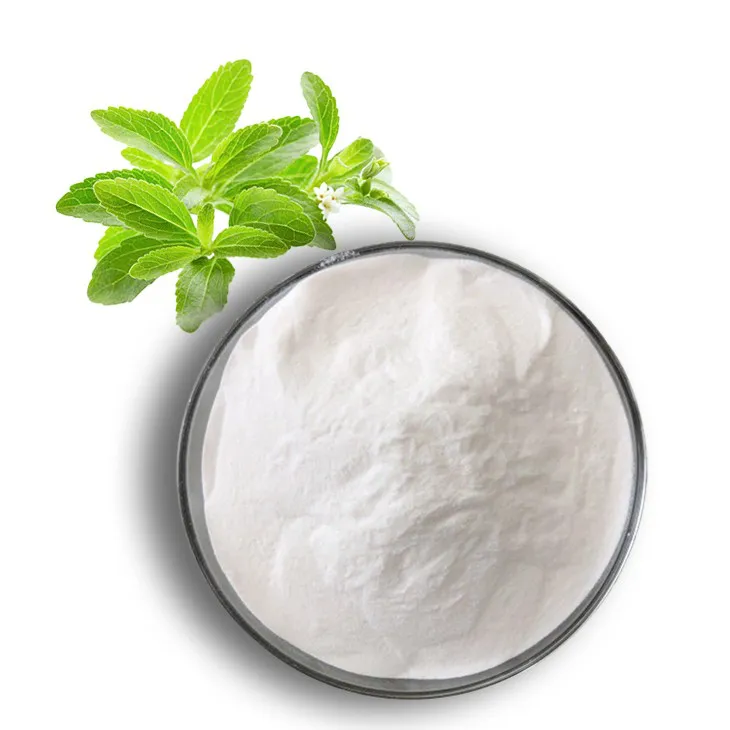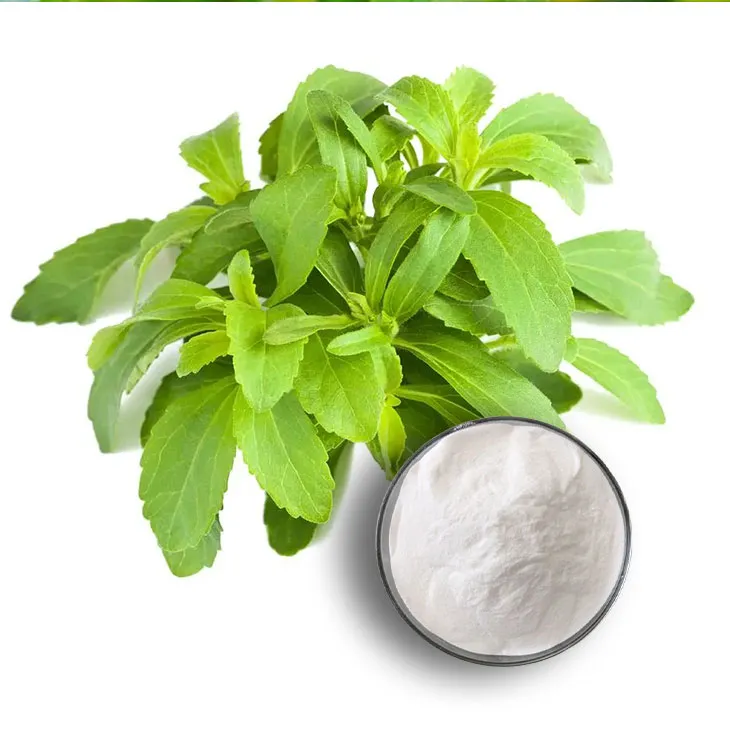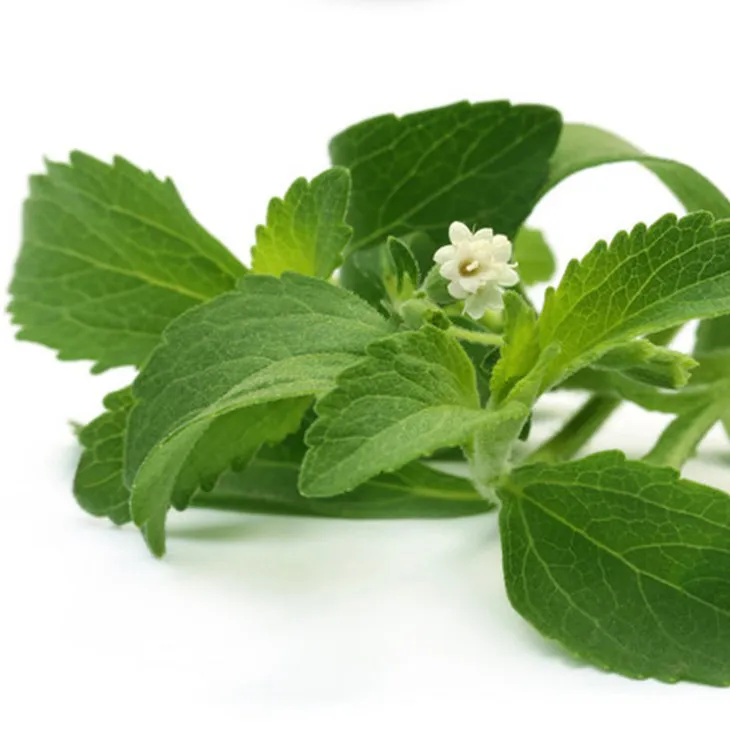- 0086-571-85302990
- sales@greenskybio.com
Stevia extract suppliers.
2024-11-28

The Rising Importance of Stevia Extract
In the modern world of food and beverage, the demand for natural and low - calorie sweetening solutions has been on a steady rise. Stevia Extract, derived from the stevia plant, has emerged as a popular choice. It offers a sweet taste without the high caloric content associated with traditional sugars. This has led to an increased focus on stevia - based products in the market.
The use of Stevia Extract is not limited to a particular type of product. It has found its way into a wide range of items. For example, in the beverage industry, it is used in diet sodas, providing consumers with a refreshing and sweet drink without the guilt of consuming excessive calories. In the confectionery sector, it is a key ingredient in sugar - free candies and chocolates, allowing those with dietary restrictions or a preference for low - sugar options to still enjoy sweet treats. Additionally, it is also being incorporated into dietary supplements, adding a touch of sweetness to products that are otherwise focused on health and nutrition.

The Role of Suppliers in the Stevia Extract Supply Chain
Raw Material Selection
For stevia extract suppliers, the process begins with the careful selection of raw materials. The quality of the stevia plant is crucial as it directly impacts the quality of the final extract. Suppliers often have strict criteria for choosing the right stevia plants.
Many suppliers choose to work directly with farmers. This direct relationship allows them to have better control over the cultivation process. They encourage and often require farmers to grow the stevia plants organically. Organic cultivation not only ensures that the final product is free from harmful pesticides and chemicals but also meets the growing consumer demand for organic products.
Sustainability is another important aspect of raw material selection. Suppliers are increasingly aware of the environmental impact of stevia cultivation. They promote sustainable farming practices such as water conservation, soil protection, and biodiversity preservation. By doing so, they not only contribute to the long - term viability of the stevia supply but also meet the expectations of environmentally conscious consumers.
The Extraction Process
The extraction process of stevia extract is a complex and crucial step for suppliers. It involves multiple stages and requires precision and careful monitoring.
High - tech equipment is a must for modern stevia extract suppliers. This equipment is designed to extract the sweet compounds from the stevia leaves efficiently while minimizing the loss of beneficial components. For example, advanced extraction machines can precisely control the temperature, pressure, and extraction time to ensure the optimal extraction of the sweeteners.
Alongside the use of high - tech equipment, strict quality control measures are implemented throughout the extraction process. Quality control begins with the inspection of the raw stevia leaves before extraction. Any damaged or sub - standard leaves are removed to prevent them from affecting the quality of the extract.
During the extraction process, samples are regularly taken and analyzed in a laboratory. These analyses check for parameters such as the purity of the extract, the presence of any contaminants, and the concentration of the sweetening compounds. Only when the extract meets all the quality standards is it considered ready for further processing or packaging.

Meeting Diverse Market Requirements
The market for stevia extract is highly diverse, with different customers having different requirements. Suppliers need to be extremely adaptable to succeed in this market.
In the food and beverage industry, different products have varying needs when it comes to stevia extract. For instance, a diet soda manufacturer may require a stevia extract with a very high - purity level to ensure a clean and consistent taste in their product. On the other hand, a manufacturer of sugar - free confectionery may need an extract with a specific blend of sweetening compounds to achieve the right texture and flavor in their candies.
Dietary supplement manufacturers also have their own set of requirements. They may be more concerned with the bioavailability of the stevia extract and its compatibility with other ingredients in the supplement. Suppliers must be able to customize their products to meet these diverse needs.
To meet these varying requirements, suppliers often invest in research and development. They study the properties of different stevia extracts and develop new extraction and purification methods. This allows them to offer a wider range of products to their customers.

Marketing and Promotion of Stevia Extract
Stevia extract suppliers play an important role in promoting stevia as a viable substitute for artificial sweeteners. They do this through various marketing and education efforts.
One of the main marketing strategies is to highlight the natural origin of stevia extract. Consumers are becoming more health - conscious and are increasingly interested in natural products. Suppliers emphasize that stevia is derived from a plant and is free from artificial chemicals, making it a healthier alternative to synthetic sweeteners.
Another aspect of marketing is to showcase the taste benefits of stevia extract. Some consumers may have the perception that natural sweeteners do not taste as good as artificial ones. Suppliers counter this by conducting taste tests and promoting the fact that stevia extract can provide a rich and satisfying sweet taste without the aftertaste often associated with artificial sweeteners.
Education is also a crucial part of the promotion. Suppliers work to educate consumers, food manufacturers, and regulatory bodies about the safety and benefits of stevia extract. They provide scientific data on its low - calorie content, its potential health benefits such as being suitable for diabetics, and its positive environmental impact. This helps to build trust and acceptance of stevia - based products in the market.

Future Outlook for Stevia Extract Suppliers
The future looks promising for stevia extract suppliers. As the demand for natural and low - calorie sweeteners continues to grow, the market for stevia extract is expected to expand further.
Technological advancements will likely play a significant role in the future of stevia extract production. New extraction methods may be developed that are more efficient and cost - effective, allowing suppliers to offer higher - quality products at more competitive prices.
There is also potential for further expansion in the range of products that use stevia extract. As more research is conducted on the properties of stevia, new applications may be discovered, opening up new markets for suppliers.
However, suppliers will also face challenges. Competition in the market is likely to increase as more companies enter the stevia extract business. They will need to continuously innovate and improve their products and services to stay ahead. Additionally, regulatory requirements may become more stringent, and suppliers will need to ensure that they comply with all relevant regulations to maintain their market position.
FAQ:
What are the key factors for sweetleaf extract suppliers in raw material selection?
For sweetleaf extract suppliers, key factors in raw material selection include working directly with farmers to ensure the plants are grown organically and sustainably. This helps in obtaining high - quality sweetleaf for the extraction process.
How do sweetleaf extract suppliers ensure the purity and safety of the extract?
They ensure the purity and safety of the extract through implementing high - tech equipment in the extraction process. Also, strict quality control measures are put in place during this complex and crucial extraction step.
What kind of products use sweetleaf extract?
A wide range of products use sweetleaf extract. These include diet sodas, sugar - free confectionery, and dietary supplements.
How do sweetleaf extract suppliers adapt to different customer requirements?
Sweetleaf extract suppliers adapt to different customer requirements by being aware of the diverse market. They strive to offer products that meet the specific needs of various industries that use their extract, whether it's for beverages, confectionery or supplements.
What efforts do sweetleaf extract suppliers make in promoting stevia?
Sweetleaf extract suppliers contribute to the promotion of stevia through marketing and education efforts. They aim to show stevia as a viable substitute for artificial sweeteners.
Related literature
- Stevia: A Natural Sweetener with Potential Health Benefits"
- "The Role of Stevia Extract in the Food and Beverage Industry"
- "Sustainable Production of Stevia: Implications for Suppliers"
- ▶ Hesperidin
- ▶ citrus bioflavonoids
- ▶ plant extract
- ▶ lycopene
- ▶ Diosmin
- ▶ Grape seed extract
- ▶ Sea buckthorn Juice Powder
- ▶ Beetroot powder
- ▶ Hops Extract
- ▶ Artichoke Extract
- ▶ Reishi mushroom extract
- ▶ Astaxanthin
- ▶ Green Tea Extract
- ▶ Curcumin Extract
- ▶ Horse Chestnut Extract
- ▶ Other Problems
- ▶ Boswellia Serrata Extract
- ▶ Resveratrol Extract
- ▶ Marigold Extract
- ▶ Grape Leaf Extract
- ▶ blog3
- ▶ blog4
-
Chinese peppermint oil powder manufacturers.
2024-11-28
-
L - Tyrosine Manufacturers from China.
2024-11-28
-
The Optimal Method for Extracting Diosmin.
2024-11-28
-
Chinese Motherwort Extract Suppliers.
2024-11-28
-
Chinese Rosemary Extract Powder Factory.
2024-11-28
-
Okra Extract
2024-11-28
-
Clove Powder
2024-11-28
-
Boswellia Serrata Extract
2024-11-28
-
Thunder God Vine Extract
2024-11-28
-
Cocoa Extract
2024-11-28
-
Buckthorn bark extract
2024-11-28
-
Honeysuckle Pollen
2024-11-28
-
Saffron Extract Powder
2024-11-28
-
Diosmin
2024-11-28
-
Aguaje Extract
2024-11-28





















